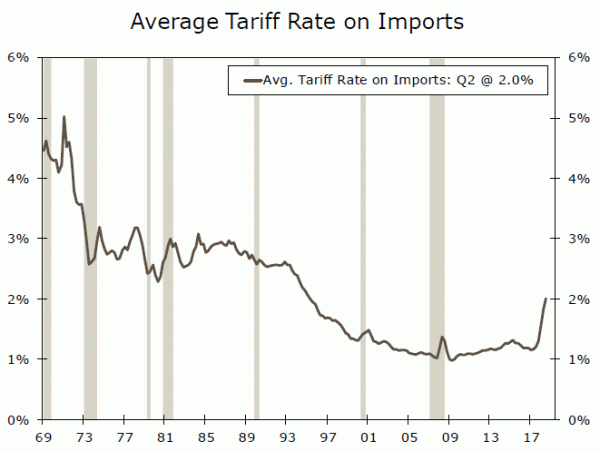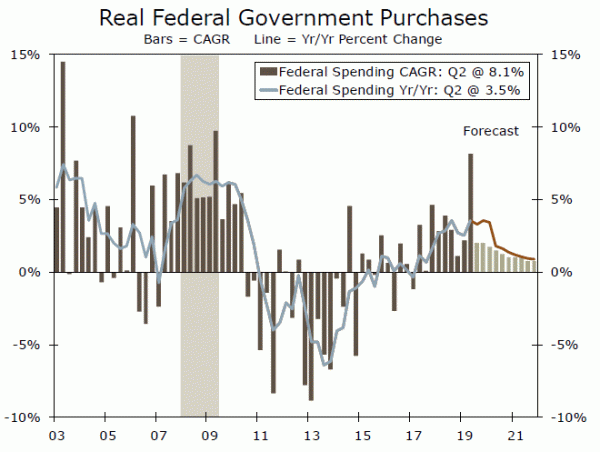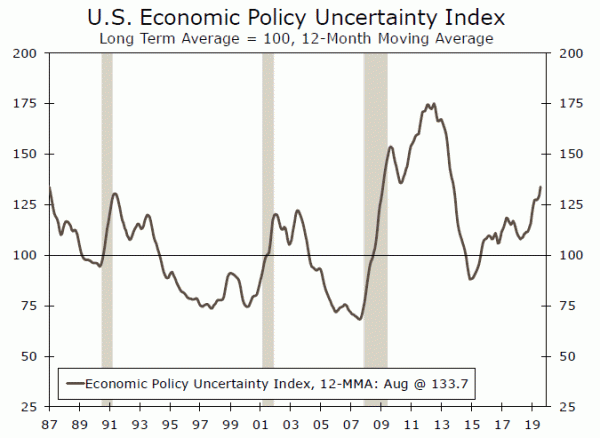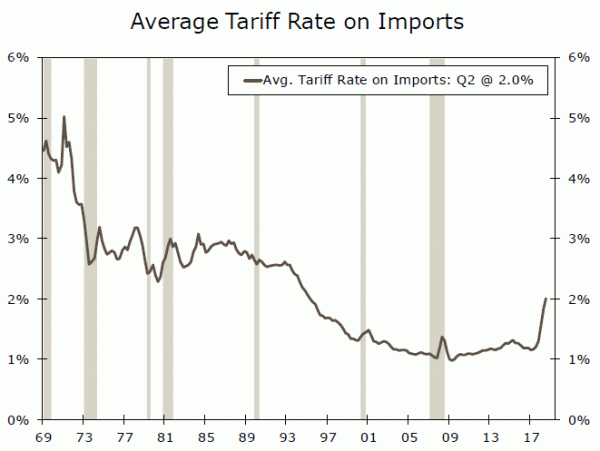This week, the Democratic-led House of Representatives moved a step closer to impeaching the president. A possible impeachment adds uncertainty to the legislative outlook, particularly for the budget and USMCA.
Impeachment Threatens Budget Deal, USMCA
Impeachment drama stole the show this week, as headlines swirled that the House of Representatives might move to impeach the president. In a practical sense, House Speaker Nancy Pelosi’s announcement that the House “is moving forward with an official impeachment inquiry” simply means that the House of Representatives will investigate President Trump on impeachable offenses, something a few committees were arguably already doing. At this point in time, there is no scheduled vote on impeachment in the House, and any such vote seems unlikely in the immediate future.
Hypothetically, if the House did vote to impeach the president, it would take a simple majority vote to pass. From there, the Senate would hold a trial, and it would require two-thirds of the Senate to vote to remove the president from office. Presidents Andrew Johnson and Bill Clinton were both impeached by the House, but neither was removed from office by the Senate.
In any event, the relationship between House Democrats and President Trump seems unlikely to improve against this backdrop. This threatens two key legislative developments in the coming months. First, Congress still needs to pass a budget for FY 2020, which begins on October 1. As we wrote in a report from July 23, the budget deal passed at that time was simply step one of a two-step process. Congress still has to appropriate the money to the various government programs and agencies. Since that deal was cut in late July, continued disagreements over funding for a wall on the U.S.-Mexico border have been a major hurdle to a full-year budget agreement.
To buy more time for negotiations, Congress recently passed a continuing resolution to fund the government through November 21. Both sides appear eager to avoid a shutdown, but if the relationship between the two parties deteriorates further over impeachment proceedings, a full-year continuing resolution or another extended government shutdown could occur.
The other major legislative item on the agenda in the coming months is the USMCA, the proposed replacement for NAFTA. At present, the executive branch has not yet formally submitted a bill to Congress, which once done would start a 90-legislative day clock on a vote. Prospects for USMCA passage had been improving, with Speaker Pelosi saying just last week that “we hope that we’re on a path to yes.”
Our forecast continues to assume that the USMCA will eventually be passed, but the timeline and political backdrop are starting to look precarious. If the budget and impeachment consume much of the oxygen over the next few months, it will be difficult to pass the USMCA by year end/early 2020. And in our view, the closer it gets to the 2020 election, the less members of Congress will want to vote on a major trade deal. NAFTA remains in place in the interim, but it looks increasingly like NAFTA/USMCA uncertainty may drag past the 2020 election.





 Signal2forex.com - Best Forex robots and signals
Signal2forex.com - Best Forex robots and signals




